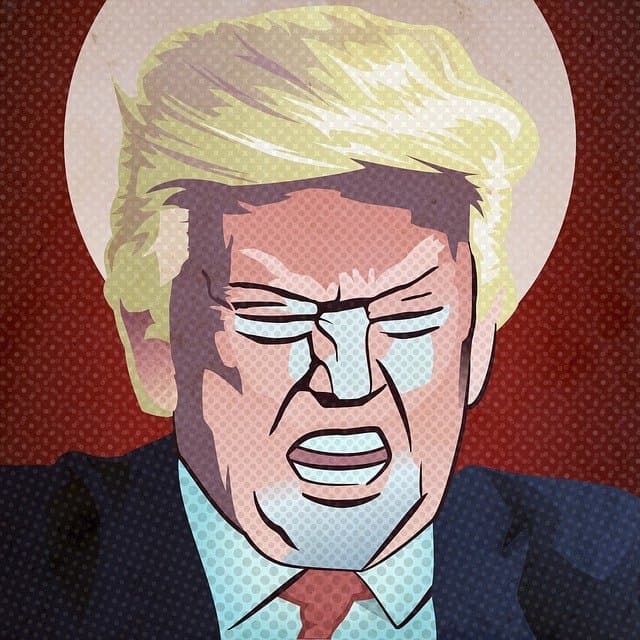The mainstream news media in the United States have been calling it the "big lie." That seems like an apt description for the blatantly false claim that Donald Trump won the 2020 presidential election; he didn't. The election wasn't stolen. He lost. In some ways, simply characterizing this as a lie doesn't seem to go far enough. It isn't just false; it is harmful. It has already inspired violence. Thus, this isn't a question of assessing potential harm since we have seen actual harm. In that way, I suppose the "big lie" has something in common with religion. Maybe it has more in common with religion than some would like to admit.
I often find myself wishing that religion was merely false. Wouldn't that be great? If the entirety of the problem was that some people (i.e., religious believers) believed things that weren't true, we could all breath a sigh of relief and move on with our lives. Unfortunately, that isn't close to the entirety of the problem. Many religious believers seek to impose what they believe on others, and some are even willing to use violence to do so. Kind of like the other "big lie," we don't have to guess about the potential for religion to cause harm. We have more examples of it causing harm than most of us can track.
I don't think it is necessarily true that all false beliefs necessarily cause harm or lead to violence. My guess is that we could all identify several examples of people who believe nonsense but never harm in anyone in pursuit of their particular nonsense. Perhaps other ingredients are needed (e.g., fear, hate, hunger for power). The question of what leads some false beliefs to be extremely harmful while others are thoroughly harmless is an interesting one to consider.
I have seen some atheists sharing memes on social media suggesting that the Trump-related "big lie" pales in comparison to other big lies (e.g., Jesus). They're probably right, though I'm not sure it is a competition. Like it or not, we've got several harmful lies with which to occupy ourselves. And since these lies tend to be almost impossible to overcome once they take hold, I'm inclined to think that prevention may be our best bet. That's one (of many) reasons I think it is vital to maintain a strong system of secular public education. I wouldn't suggest this is all we should be doing, but protecting it from external threats and improving its quality seem like obvious places to start.
For the health of our society, democratic or otherwise, we desperately need citizens who can distinguish what is real from what is false, ask good questions and seek answers effectively, think critically, and apply skepticism to their own cherished ideas. We also need citizens who recognize that they are not the center of the universe and actually give a damn about one another. Getting to this point won't be easy, but I don't think it is much of an exaggeration to suggest that our future likely depends on our skill in doing so. And just so nobody thinks I am calling for some sort of return to how things used to be, I'm not. That ship sailed a long time ago, and it isn't coming back. Our challenge now is about moving forward to create something better and not trying to restore something that no longer exists.
